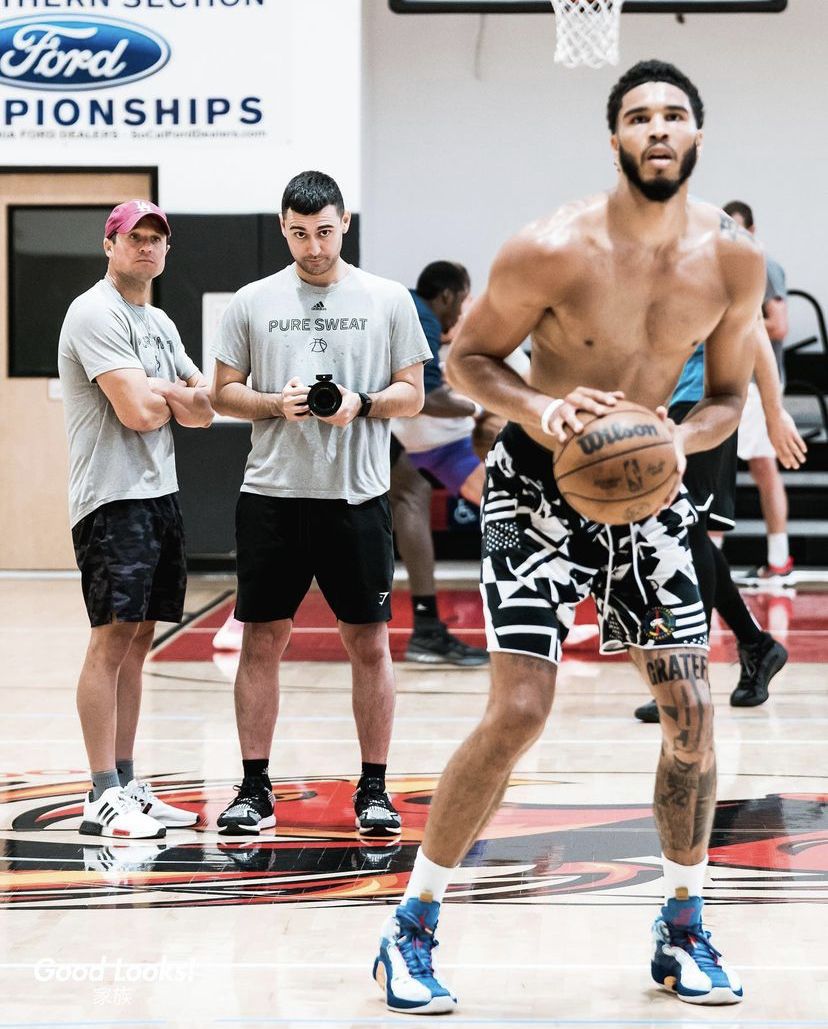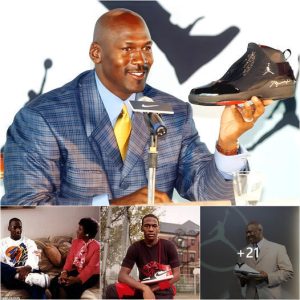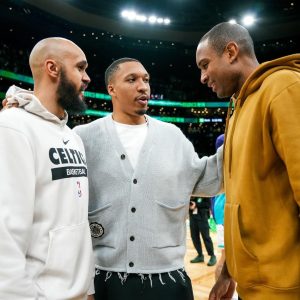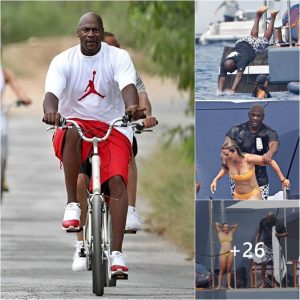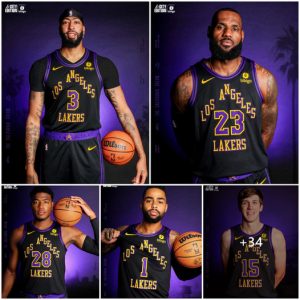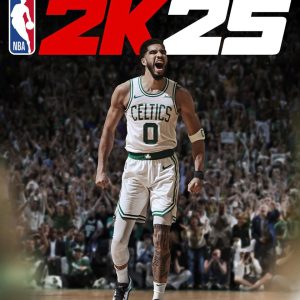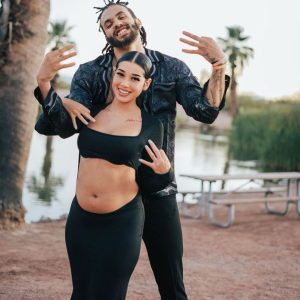Jayson Tatum, a hero for the Boston Celtics, possesses an extensive collection of ink.
The 25-year-old NBA All-Star is adorned with various artworks, including tattoos that pay homage to his mother, son, and personal voyage towards entering the league.
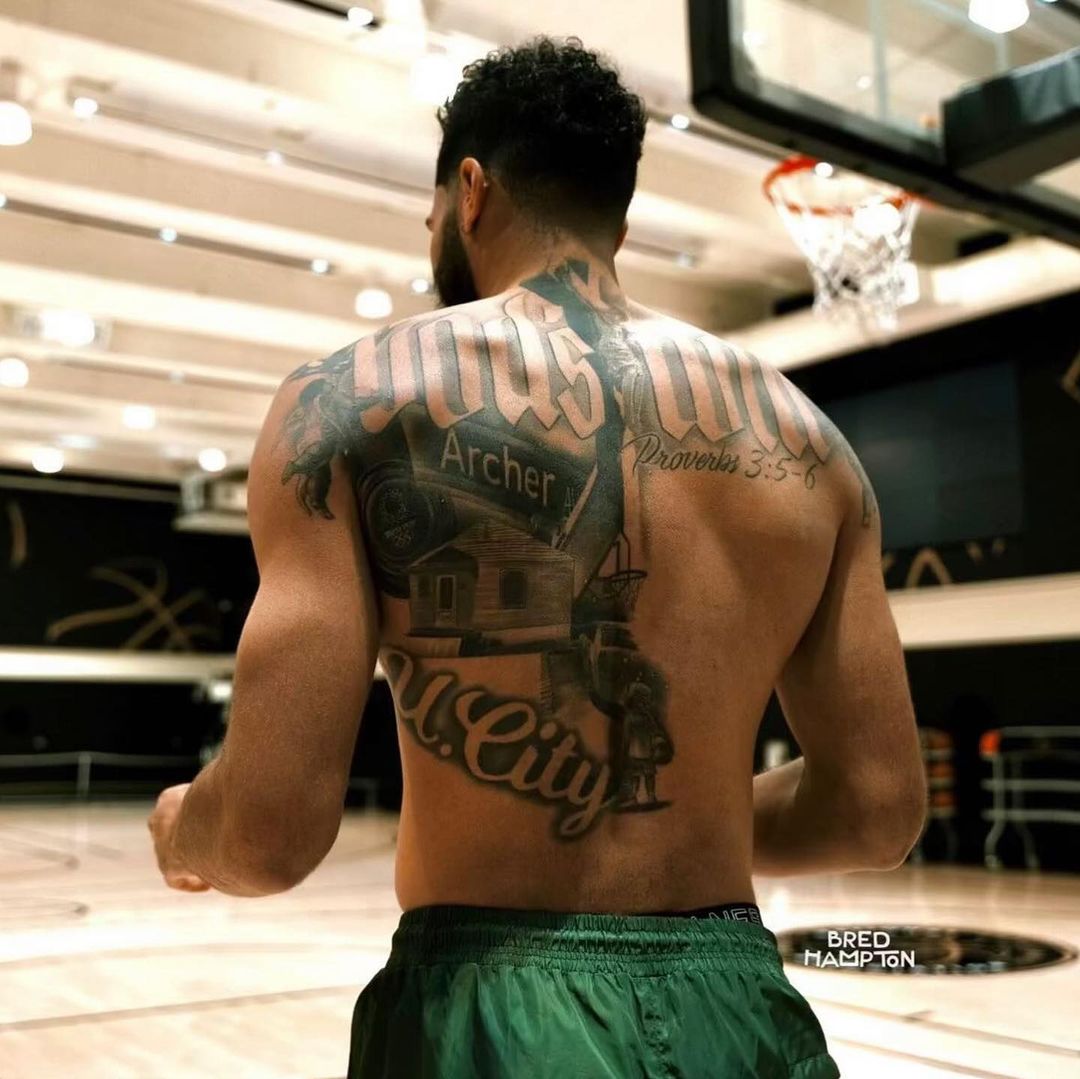
.
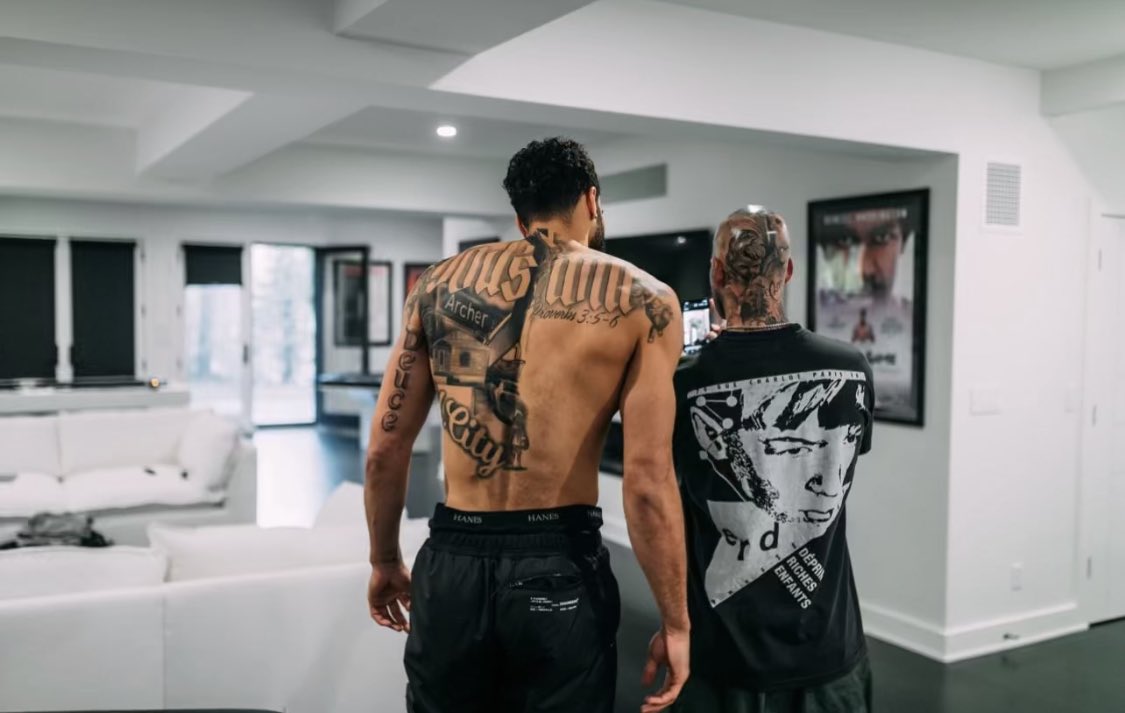
.
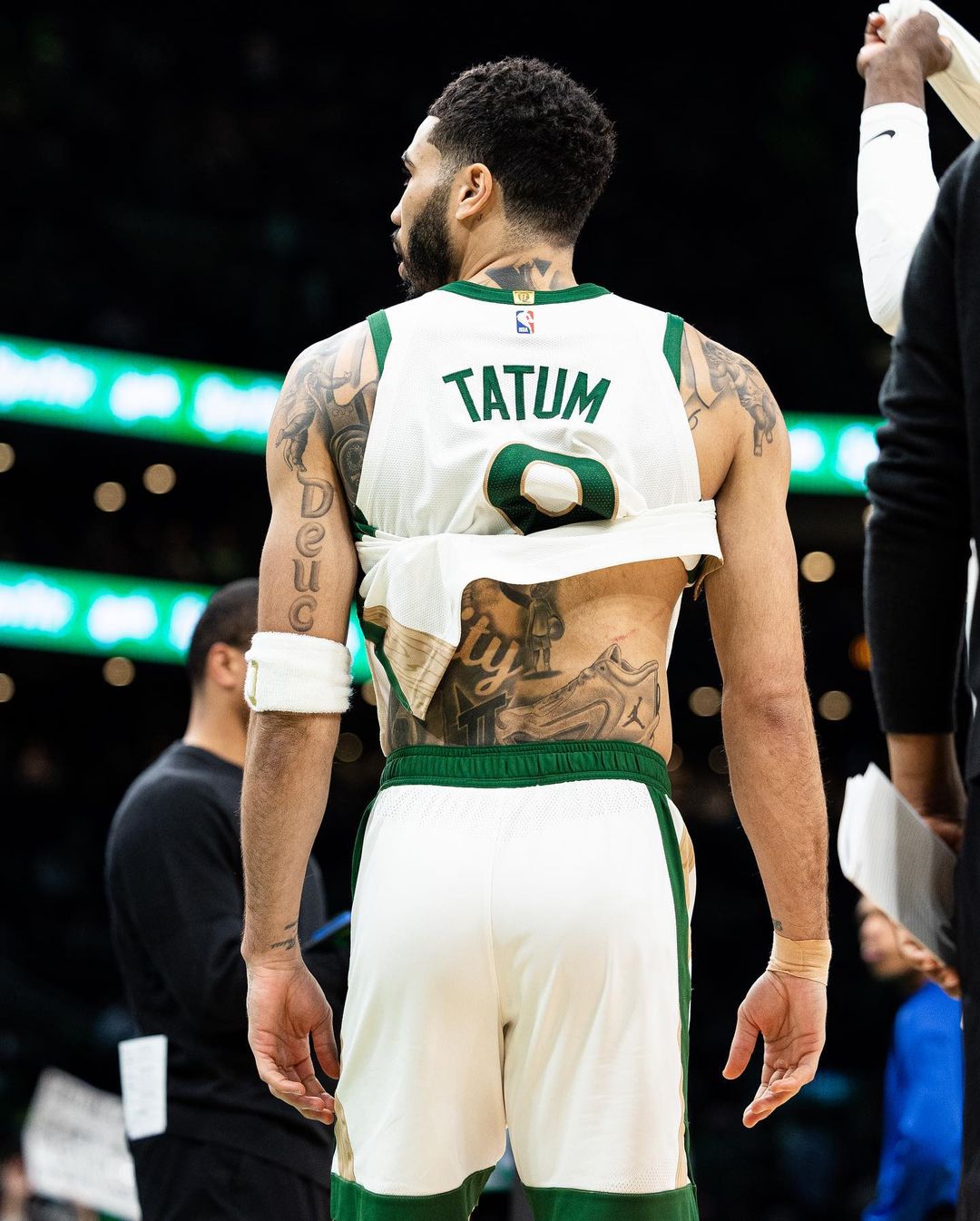
And it all started because of his father.
“I’ve always desired to be like my father, so I’ve always desired to get tattoos,” he revealed in 2019 to NBC Sports.
Former St. Louis University collegiate basketball player Justin Tatum, who also had his share of ink, ostensibly served as an inspiration to young Jayson.
However, the former third-overall decision waited to get tattoos on his wrists until just before his rookie season in 2017.
He acknowledged that they were extremely painful, stating, “I felt like I would never do it again.”
“However, after having a son, that became my subsequent tattoo.” I desired an accessory to enhance this leg. I then obtained an image of my mother.
Over the course of time, Tatum has consistently augmented his collection.

He carries “God’s Will” and “Proverbs 3:5-6” on his shoulders as a devout Christian.
Additionally, his college and high school jerseys are layered over one another on his left calf, and in honor of the late Kobe Bryant, two Black Mamba snakes in the shape of the number 24 are placed just above them.
Steve Wiebe, who has contributed significantly to Tatum’s tattoos, adorned the left side of his back in 2022 with a large collage of photographs commemorating his childhood home in St. Louis.
Furthermore, he keeps St. Louis near and dear to his heart, as evidenced by the mushroom cloud tattoo and the adage “St. Louis – ’til the world blows” that are adorning his right leg.
Tatum’s right leg bears a portrait of him cradling his son, Jayson Jr., with the inscription “Like father, like son.”
Additionally, he bears the year of his birth, “98,” on his right knee, and the moniker “Big Deuce,” which pertains to his son, whom he refers to as “Deuce.”
However, despite the fact that Tatum has continued to amass an impressive collection of ink throughout the years, he acknowledged that “They hurt, however, each time.”
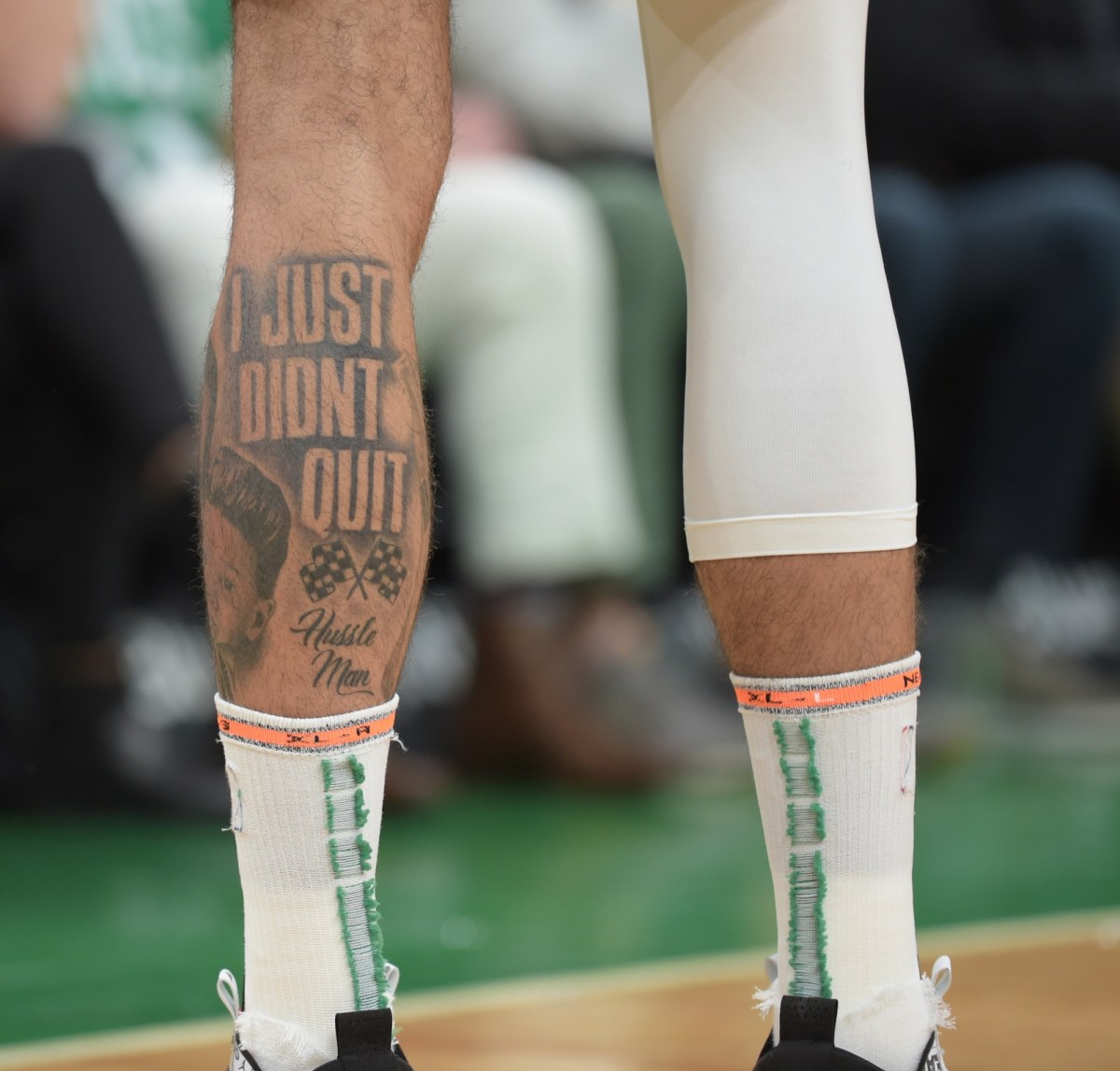
.
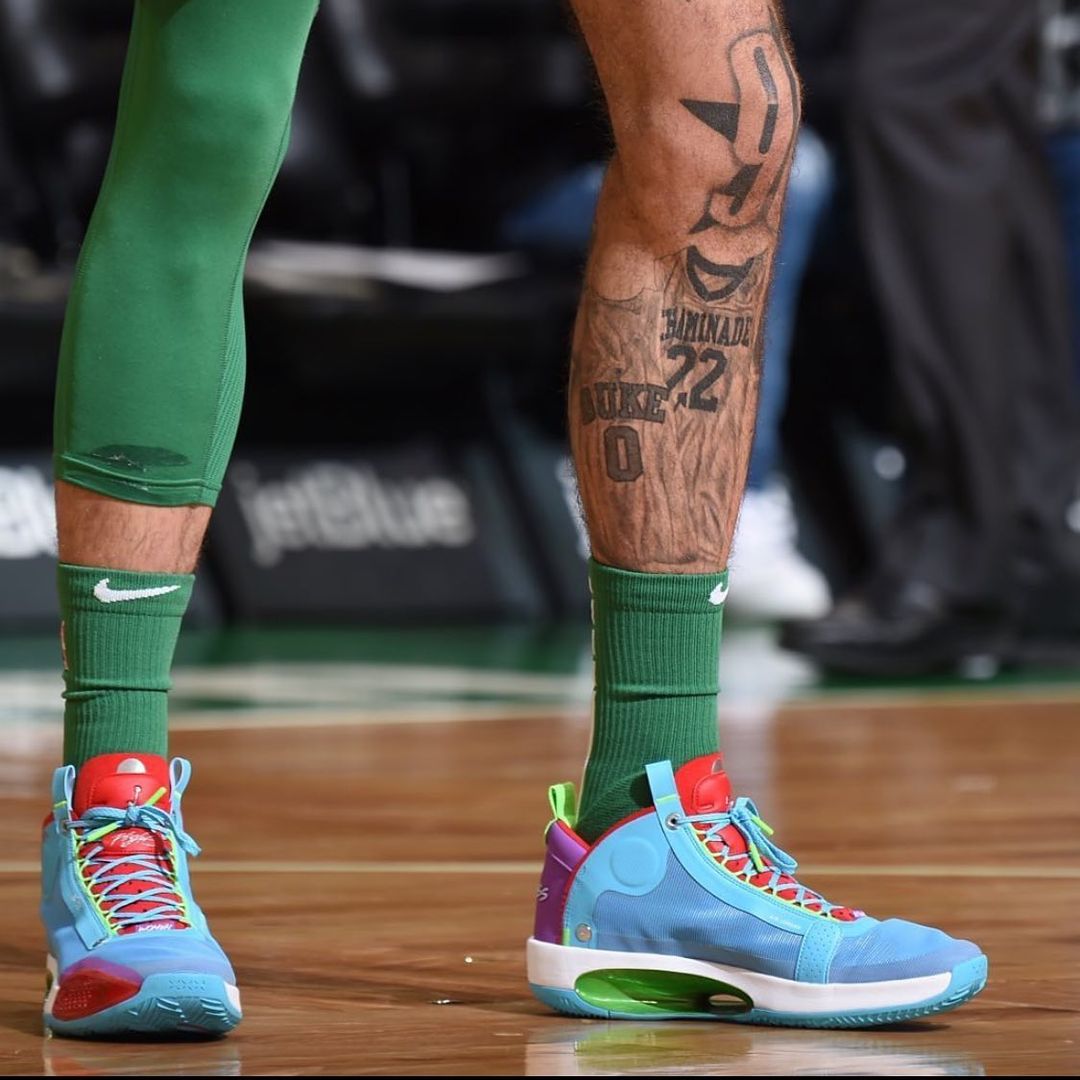
.
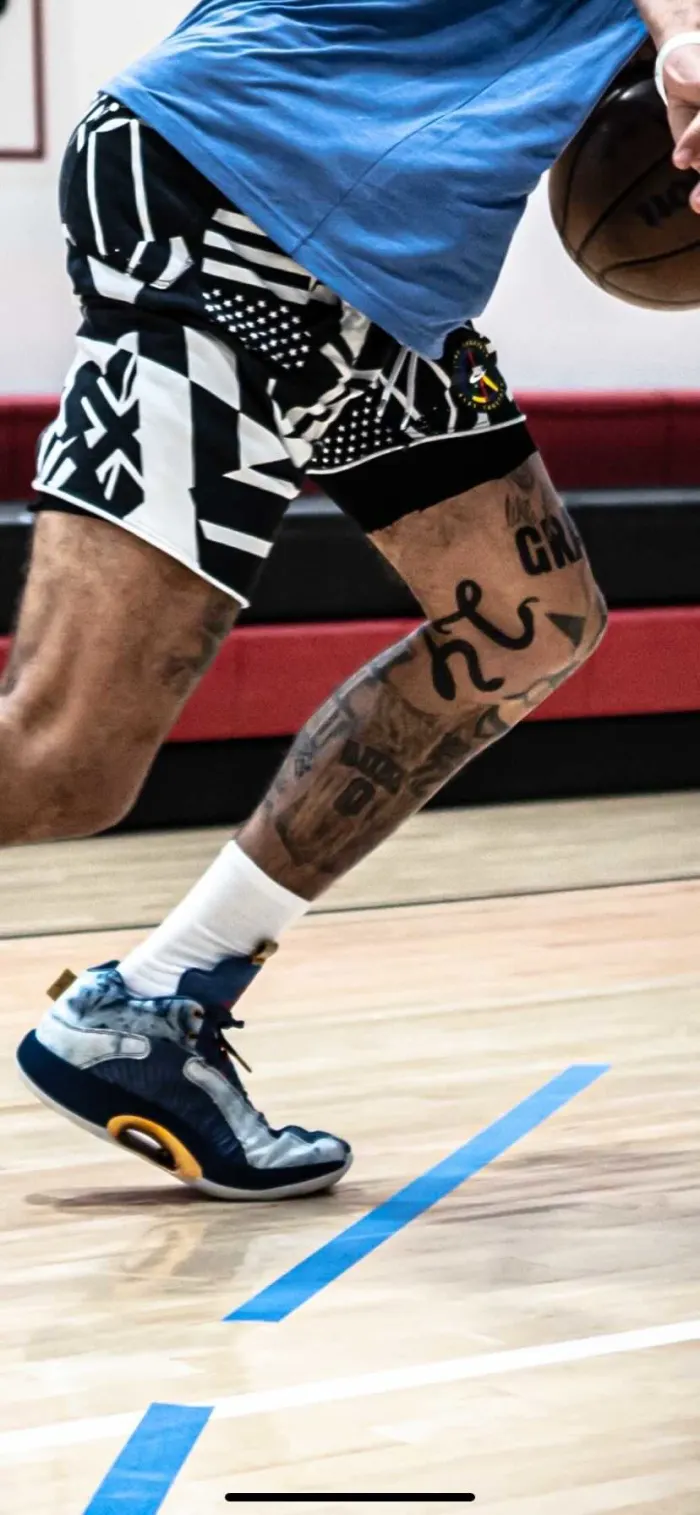
.
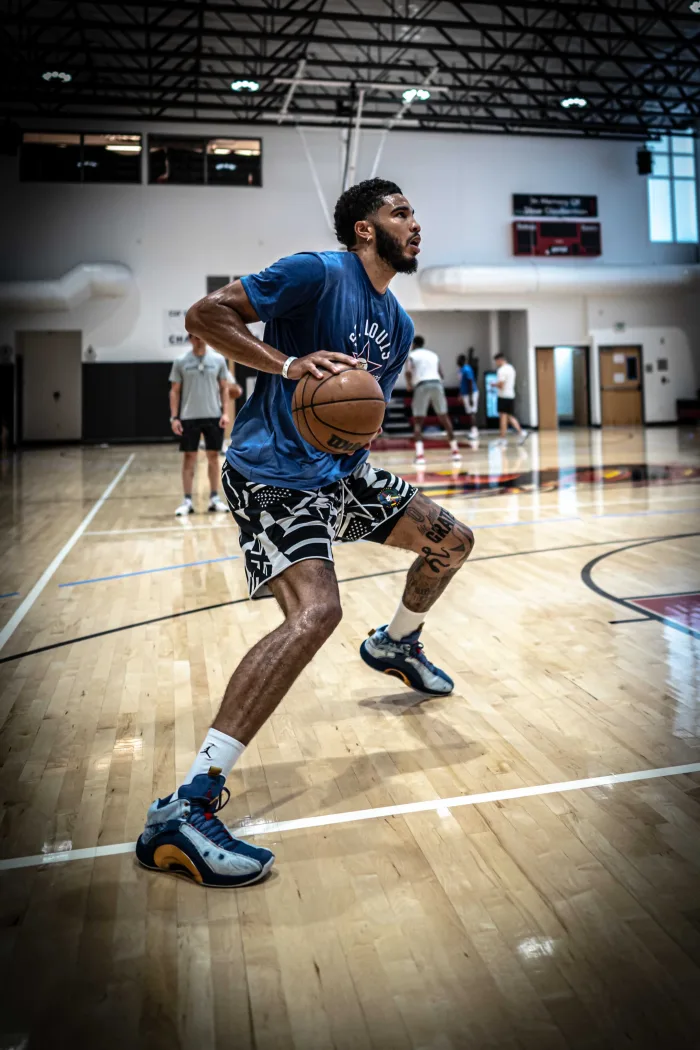
.
